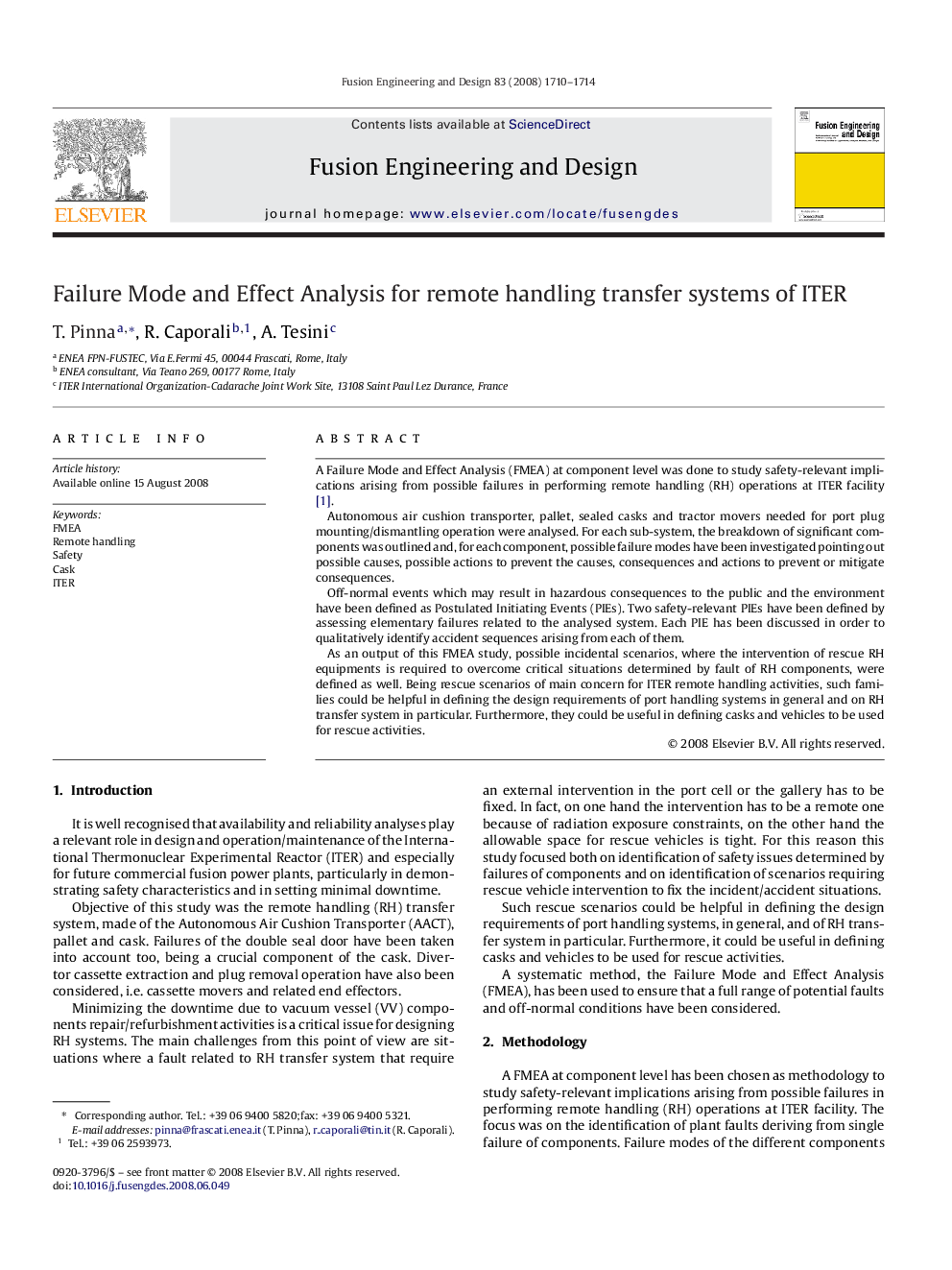| کد مقاله | کد نشریه | سال انتشار | مقاله انگلیسی | نسخه تمام متن |
|---|---|---|---|---|
| 272785 | 505030 | 2008 | 5 صفحه PDF | دانلود رایگان |

A Failure Mode and Effect Analysis (FMEA) at component level was done to study safety-relevant implications arising from possible failures in performing remote handling (RH) operations at ITER facility [1].Autonomous air cushion transporter, pallet, sealed casks and tractor movers needed for port plug mounting/dismantling operation were analysed. For each sub-system, the breakdown of significant components was outlined and, for each component, possible failure modes have been investigated pointing out possible causes, possible actions to prevent the causes, consequences and actions to prevent or mitigate consequences.Off-normal events which may result in hazardous consequences to the public and the environment have been defined as Postulated Initiating Events (PIEs). Two safety-relevant PIEs have been defined by assessing elementary failures related to the analysed system. Each PIE has been discussed in order to qualitatively identify accident sequences arising from each of them.As an output of this FMEA study, possible incidental scenarios, where the intervention of rescue RH equipments is required to overcome critical situations determined by fault of RH components, were defined as well. Being rescue scenarios of main concern for ITER remote handling activities, such families could be helpful in defining the design requirements of port handling systems in general and on RH transfer system in particular. Furthermore, they could be useful in defining casks and vehicles to be used for rescue activities.
Journal: Fusion Engineering and Design - Volume 83, Issues 10–12, December 2008, Pages 1710–1714